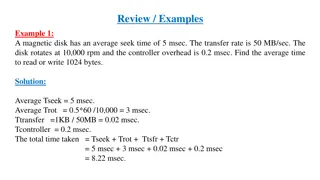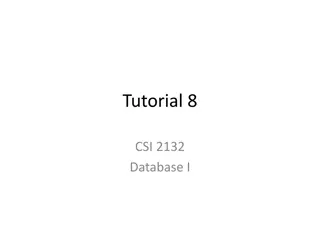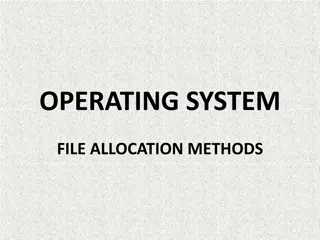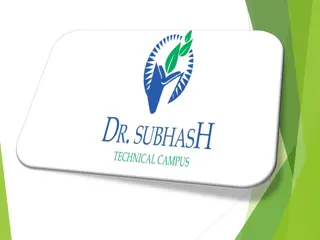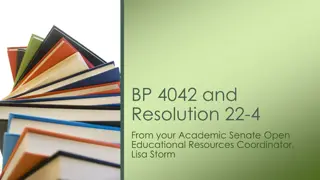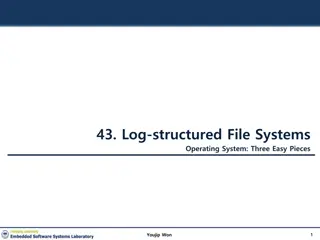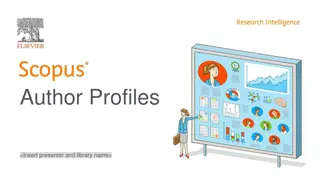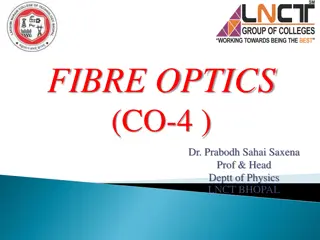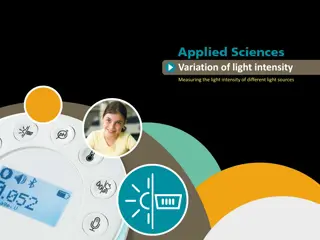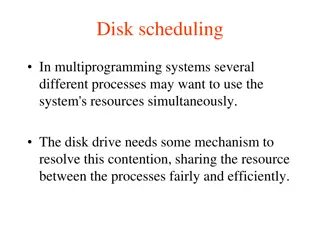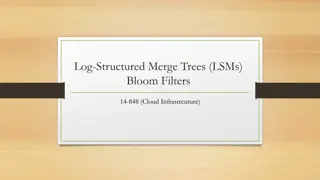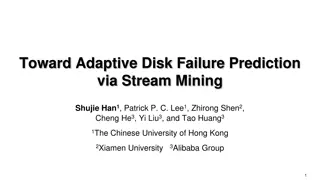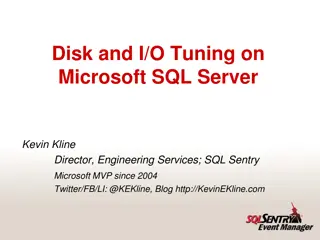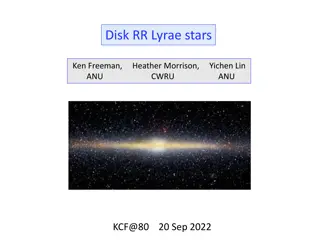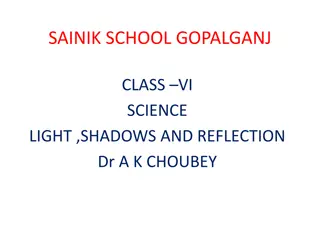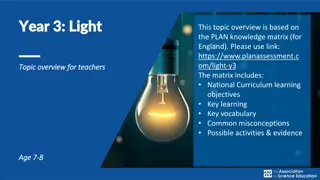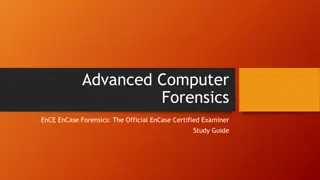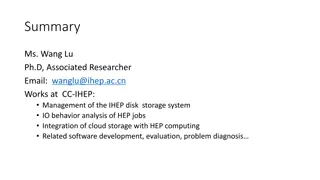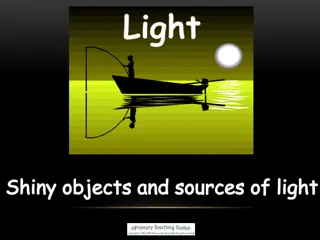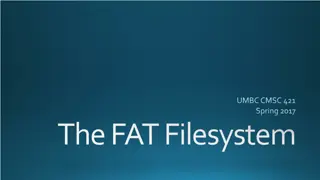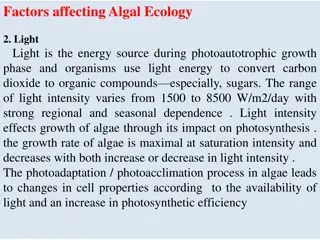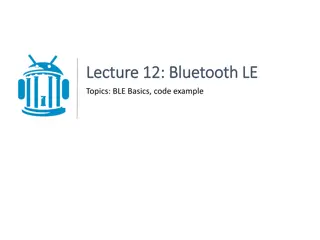Understanding Magnetic Disks and Disk Controllers in Computer Memory Hierarchy
Auxiliary memory in computer systems provides additional backup storage through technologies like magnetic disks and tapes. Magnetic disks, which consist of circular platters coated with magnetizable material, offer direct access storage and are controlled by read/write mechanisms and disk controlle
10 views • 42 slides
Disk Performance Considerations and Calculations
Explore examples of disk performance calculations, including seek time, transfer rate, rotational speed, controller overhead, capacity calculations for platters and cylinders, and total disk capacity. Understand how to calculate average time for reading or writing data, number of platters required f
5 views • 5 slides
Understanding Disk Storage Systems in Computer Science
Disk storage systems play a crucial role in computer architecture. This tutorial delves into the differences between disks and main memory in terms of access time, capacity calculations, block sizes, rotational delays, and transfer rates. It covers key concepts such as track capacity, surface capaci
0 views • 23 slides
Operating System: File Allocation Methods
File allocation methods in operating systems determine how files are stored in disk blocks. The main methods include Contiguous Allocation, Linked Allocation, and Indexed Allocation. Contiguous Allocation involves allocating blocks in a contiguous manner for efficient disk space utilization and fast
0 views • 14 slides
Understanding Clutches: Types and Functions
Clutches play a crucial role in connecting and disconnecting driving shafts, with various types like positive and friction clutches. Positive clutches, such as jaw clutches, ensure direct drive, while friction clutches like disk clutches use frictional material to engage and disengage shafts. Learn
0 views • 14 slides
Crafting Your Professional Profile: A Comprehensive Guide
Crafting a compelling professional profile is essential for showcasing your skills, experience, and achievements. From identifying keywords to defining your headline and summarizing your accomplishments, this guide provides step-by-step instructions to help you create a standout profile that resonat
0 views • 12 slides
Academic Senate Resolutions and Low-Cost Thresholds in Higher Education
The Academic Senate addresses the adoption of open educational resources (OER) and low-cost materials to support academic freedom and compliance with legislative requirements. The resolution discusses the definition of low-cost resources and the variability among California Community Colleges in set
2 views • 9 slides
Illuminating Spaces with Low Profile Disk Lights
The appeal of low profile disk lights lies in their sleek and minimalist design. Unlike traditional bulky fixtures, these lights are characterized by their ultra-thin profile, often no more than a few inches thick. This slim silhouette allows them to
0 views • 2 slides
Understanding Log-structured File Systems in Operating Systems
Log-structured file systems (LFS) address performance issues by transforming updates into sequential writes to disk. This process improves efficiency by buffering updates in memory before writing them to disk. The strategy includes determining buffer size to optimize write effectiveness and utilizin
0 views • 17 slides
Engaging Activity - Create a Profile for Matthew from "Gold Fish Boy
Dive into character analysis with an engaging activity to create a profile for Matthew from "Gold Fish Boy." Utilize evidence from the text to develop a comprehensive understanding of this character. Watch a video, recall the story, and get creative in presenting your character profile.
0 views • 12 slides
Understanding the Importance of Updating Your Scopus Author Profile
Learn about the significance of updating your Scopus author profile, where the data comes from, how profiles are created, and how to make corrections using the Author Feedback Wizard. Keeping your profile up-to-date can help in securing funding, assessing research impact, and ensuring accurate repre
3 views • 12 slides
Understanding the Temporomandibular Joint (TMJ) Anatomy
The temporomandibular joint (TMJ) is a complex joint formed by the articulation between the temporal bone and the mandible. It consists of a fibrous intra-articular disk that aids in movement and stability. The disk is biconcave with anterior and posterior bands, and attachments to ligaments and mus
0 views • 45 slides
Overview of Optical Fibre Technology and Applications
Optical fibre technology, spearheaded by Dr. Prabodh Sahai Saxena, revolutionizes communication systems through light transmission. This cutting-edge technology utilizes fibre optics made of glass or plastic to carry light signals, offering advantages like high bandwidth, low signal loss, and no ele
0 views • 20 slides
Illuminate with Elegance The Ultimate Guide to Low Profile Disk Lights
In the realm of modern interior design, lighting serves as more than just a functional necessity; it's a crucial element that enhances ambiance and defines spatial aesthetics. Among the myriad options available, low profile disk lights stand out for
0 views • 2 slides
How to Define and Utilize Your Ideal Customer Profile?
An Ideal Customer Profile (ICP) is a detailed representation of the customers who provide the most value to a business. This profile typically includes demographic information such as age, gender, income level, and education. It also incorporates fir
0 views • 4 slides
Understanding the Difference Between LLVM Profile-Instr-Generate and Profile-Generate Options
The profile-instr-generate and profile-generate options in LLVM instrumentation serve distinct purposes. Profile-instr-generate generates instrumentation based on profiling data during compilation, aiding in performance optimization. In contrast, profile-generate is used to generate a profile based
1 views • 20 slides
Understanding Light Intensity Variation in Different Sources
Explore the correlation between light intensity and efficiency in various light sources through an intriguing experiment. Delve into the theoretical framework and practical applications to grasp the essence of light intensity and its distribution. Uncover the factors influencing the efficiency of li
0 views • 21 slides
Understanding Optical Storage Technology
Optical storage technology originally designed for audio offers a capacity of 650MB, providing over 70 minutes of audio playback. Data is recorded digitally on a polycarbonate disk's surface as microscopic pits. The disk is organized in a spiral track with sectors of the same length arranged in bloc
5 views • 16 slides
Brightening Your Home with Disk Light Flush Mounts A Modern Lighting Solution
In the quest for stylish, functional, and efficient home lighting, disk light flush mounts have emerged as a popular choice. These sleek, contemporary fixtures provide a streamlined design that integrates seamlessly with any room while delivering eff
0 views • 2 slides
Understanding Disk Scheduling in Multiprogramming Systems
In a multiprogramming system, several processes may contend for disk resources. Disk scheduling aims to efficiently share the disk drive's resources among processes, maximizing I/O request satisfaction while minimizing head movement. Various disk scheduling policies like FCFS, SSTF, and SCAN aim to
1 views • 22 slides
Efficient Data Management Strategies for High-Throughput Systems
This content discusses the use of Log-Structured Merge Trees (LSMs) and Bloom Filters in cloud infrastructure to manage high-throughput updates efficiently. It explores strategies such as collecting and batching updates in memory, spilling data from memory to disk, and merging in-memory and on-disk
1 views • 18 slides
Zo's Academic Performance Profile and Improvement Plan
Zo's profile highlights challenges with studying effectively and focusing, with areas for improvement including academic subjects, study strategies, well-being, mindset, and study skills. The profile suggests incorporating effective study strategies, leveraging numerical reasoning skills, and excell
0 views • 7 slides
StreamDFP: Adaptive Disk Failure Prediction via Stream Mining
StreamDFP introduces a general stream mining framework for disk failure prediction, addressing challenges in modern data centers. By predicting imminent disk failures using machine learning on SMART disk logs, it aims to enhance fault tolerance and reliability. The framework adapts to concept drift
0 views • 26 slides
Prescription Drug and Opioid Misuse in Illinois Epidemiological Profile
Explore the Illinois Statewide Epidemiological Profile on Prescription Drug and Opioid Misuse, developed by the Illinois Statewide Epidemiological Outcomes Workgroup and funded by Substance Abuse and Mental Health Services Administration. The profile covers consumption, prevalence, contributing fact
0 views • 28 slides
Disk and I/O Tuning on Microsoft SQL Server by Kevin Kline
Explore disk and I/O tuning best practices for Microsoft SQL Server with insights from Kevin Kline, covering fundamentals of disk hardware architecture, disk sector alignment issues, performance impacts, and the emergence of SSD technology. Discover key strategies and resources for optimizing disk a
0 views • 34 slides
Metal-Rich Field RR Lyrae Stars and Galactic Evolution
Metal-rich field RR Lyrae (RRab) stars, distinct from cluster RR Lyrae stars, play a significant role in Galactic evolution due to their unique characteristics. With periods around 0.4 to 1 day, these old stars with sawtooth light curves are found to have a disk-like distribution and kinematics. The
0 views • 24 slides
Understanding Light, Shadows, and Reflection in Science
Light is a vital form of energy that helps us see objects. Luminous objects emit light, while non-luminous objects do not. Understanding how light interacts with objects, creating shadows and reflections, is crucial in science. Transparent objects allow light to pass through, translucent objects all
0 views • 13 slides
Understanding Light: Key Concepts for Year 3 Students
Delve into the world of light with Year 3 students through engaging activities and explorations. Learn about sources of light, shadows, reflective surfaces, and the importance of light for vision. Discover how light helps us see and how shadows are formed, while exploring materials and objects that
0 views • 9 slides
Understanding File Systems and Disk Basics in Computer Forensics
Explore the fundamentals of file systems and disk basics in computer forensics, covering topics such as disk preparation, partitioning, volume creation, file system formatting, FAT basics, and file allocation tables. Learn about disk structures, cluster allocation, and the functioning of FAT version
0 views • 24 slides
Economic Ward Profile of Chesham, Buckinghamshire - August 2023
Economic Ward Profile of Chesham, Buckinghamshire, provides an in-depth analysis of the local economy, resident demographics, and potential barriers to employment. The profile includes key statistics such as the number of residents, households, active companies, unemployment rate, and more, offering
0 views • 50 slides
Research Insights on IHEP Disk Storage Systems and Cloud Computing Integration
Ms. Wang Lu, Ph.D., an associated researcher at CC-IHEP, specializes in the management and analysis of the IHEP disk storage system, IO behavior analysis of HEP jobs, and the integration of cloud storage with HEP computing. Her research involves software development, evaluation, and problem diagnosi
0 views • 9 slides
Understanding Sources of Light and Reflection
Exploring the concept of light sources and reflection, the article delves into how light is created by various objects like the sun, light bulbs, and fires. It explains the difference between sources of light and objects that reflect light, such as shiny metal surfaces. The reader is encouraged to i
0 views • 14 slides
Understanding Light Absorption by Chlorophyll in Biology
Explore how chlorophyll absorbs light in photosynthesis, the role of different types of seaweeds, and the use of spectrometers to measure light absorption. Discover the specific light regions absorbed by chlorophyll A and B, as well as adaptations in seaweeds for varying light intensities. Learn abo
0 views • 9 slides
Overview of FAT Filesystem: Definitions, History, and Structures
The FAT (File Allocation Table) Filesystem dates back to the late 1970s and has evolved through versions like FAT8, FAT12, FAT16. This system organizes data on disk using a simple yet effective structure of allocation tables for file storage, following Little Endian byte ordering. The FAT structure
0 views • 14 slides
Economic Ward Profile: Totteridge & Bowerdean, Buckinghamshire - August 2023
The Economic Ward Profile for Totteridge & Bowerdean in Buckinghamshire provides insights into the local economy, residents, and potential barriers to employment. With key statistics, fast facts, and comparisons with Buckinghamshire and England averages, this profile offers a comprehensive overview
0 views • 48 slides
Understanding Light: How We See and Interact with Objects
Explore the fascinating world of light and vision, from how light travels in straight lines to how we perceive objects. Learn about luminous and nonluminous objects, the different categories of light sources, and the vocabulary associated with light interactions. Delve into the concepts of emitting,
0 views • 7 slides
Factors Affecting Algal Ecology: Light Intensity Impacts on Algae Growth and Composition
Light intensity plays a crucial role in the growth and composition of algae. Algae undergo photoadaptation processes to adjust to varying light levels, affecting their photosynthetic efficiency and cellular properties. High light intensity can lead to photoinhibition and changes in cellular composit
0 views • 19 slides
Exploring the UK Linguistics Olympiad (UKLO) and the Rosetta Disk
Delve into the world of the UK Linguistics Olympiad (UKLO) and the intriguing Rosetta Disk. Discover the incredible achievements, medal winners, intriguing insights into numerous languages, and the Rosetta Disk's extensive documentation on human languages worldwide.
0 views • 8 slides
Introduction to Bluetooth Low Energy (BLE) Technology
Bluetooth Low Energy (BLE) is a wireless protocol that enables direct connections between devices such as phones and health trackers. It is a lightweight subset of classic Bluetooth, offering advantages like low power consumption and faster throughput. BLE devices typically have two roles: periphera
0 views • 19 slides
Profile Inference and Label Propagation in Large Networks
The presentation discusses the importance of complete profiles for enhancing searchability, personalized recommendations, and targeted advertising in large networks. It explores methods like profile inference using social network data and label propagation to fill in missing profile fields. The talk
0 views • 23 slides

